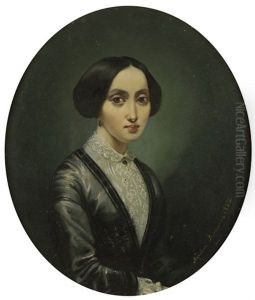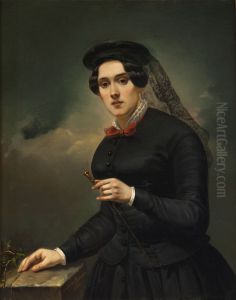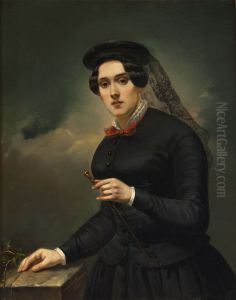Napoleon Illakowicz Paintings
Napoleon Illakowicz was a Polish poet and translator, born on February 1, 1869, in Vilnius, which at the time was part of the Russian Empire and is now the capital of Lithuania. His full name was Napoleon Stanisław Adam Ludwig Zygmunt Illakowicz, and he hailed from the Polish nobility with a background that included a mix of Polish and Lithuanian heritage. Illakowicz's life and work were marked by the cultural and political milieu of his era, which saw the partitions of Poland and the struggle for Polish independence.
In his early years, Illakowicz received an education typical for a member of the nobility. He pursued his studies in various parts of the Russian Empire, including St. Petersburg, where he engaged with the literary circles of the time. His exposure to the arts and literature from a young age instilled in him a deep appreciation for cultural pursuits. As a poet, Illakowicz was associated with the 'Young Poland' movement, which was characterized by its modernist tendencies and played a significant role in the development of Polish literature and arts at the turn of the 20th century.
Despite his noble origins, Illakowicz's life was not without challenges. The political unrest and the struggle for Polish independence deeply affected him. His writings often reflected the sentiments of his compatriots who longed for a sovereign Poland. In addition to his poetry, Illakowicz was known for his translations, which helped introduce Polish readers to the works of foreign authors. His contributions to Polish literature were part of a broader effort by intellectuals of the time to preserve and promote Polish culture under oppressive foreign rule.
Napoleon Illakowicz died on March 10, 1928, in Warsaw, Poland. His death marked the end of a life dedicated to the enrichment of Polish literary arts. Though not as widely recognized internationally as some of his contemporaries, Illakowicz's works remain a testament to the resilience and creativity of Polish culture during a tumultuous period in the country's history. His poetry and translations continue to be studied by those interested in the literary history of Poland and the Young Poland movement.



